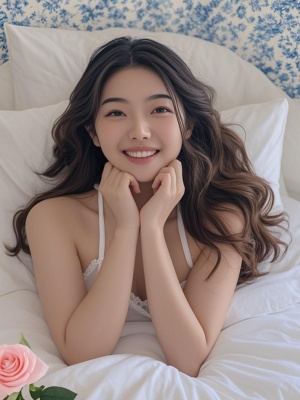The Timeless Art of Classic Portraits: A Comprehensive Guide
Introduction: The Enduring Appeal of Classic Portraits
Classic portraits have captivated audiences for centuries, serving as powerful visual records of human history and emotion. From Renaissance masterpieces to modern photographic interpretations, these artistic representations continue to hold significant cultural and aesthetic value. Whether you're an art enthusiast or a photography professional, understanding classic portraits can deepen your appreciation for this timeless art form.
At MediaAI Art Gallery, we celebrate the legacy of classic portraiture while exploring its contemporary applications through AI technology. This comprehensive guide will examine the key elements that define classic portraits and their evolution through different artistic periods.
The Defining Characteristics of Classic Portraits
Composition and Lighting
Classic portraits typically feature balanced compositions with careful attention to lighting. The traditional Rembrandt lighting technique, characterized by a triangular highlight on the shadowed cheek, remains a hallmark of professional portrait photography today. Key elements include:
- Three-quarter or full-face views
- Subtle chiaroscuro (light-dark contrast)
- Harmonious background elements
- Strategic placement of the subject
Emotional Depth and Character
Unlike casual snapshots, classic portraits aim to reveal the subject's personality and inner life. Artists achieve this through:
- Careful study of facial expressions
- Symbolic props or accessories
- Meaningful gaze direction
- Body language and posture
Historical Evolution of Portrait Styles

Renaissance to Romanticism
The Renaissance period (14th-17th centuries) established many conventions of classic portraiture. Artists like Leonardo da Vinci and Raphael perfected techniques of realistic representation while imbuing their subjects with psychological depth. The Romantic era later introduced more dramatic lighting and emotional intensity.
Modern Interpretations
Contemporary artists continue to reinterpret classic portrait techniques. Modern technologies like AI photo restoration allow us to preserve and enhance historical portraits while digital tools enable new creative possibilities.
Creating Classic Portraits Today: Problem-Solution Matrix
Common Challenges and Professional Solutions
Modern portrait artists face several challenges when attempting classic styles:
| Problem | Solution |
|---|---|
| Achieving authentic period lighting | Use modified Rembrandt lighting setups with softboxes |
| Creating timeless expressions | Study classical paintings for reference |
| Maintaining technical precision | Utilize high-resolution cameras and proper posing techniques |
The Future of Classic Portraiture
As we look ahead, classic portraits continue to evolve while maintaining their fundamental principles. Emerging technologies like AI-assisted art creation (explored in our AI Art Guide) offer exciting possibilities for both preserving traditional techniques and pushing creative boundaries.
According to the National Portrait Gallery in London, interest in classical portraiture has grown by 27% in the past decade, demonstrating its enduring relevance in our digital age. This resurgence suggests that despite technological advancements, the human connection fostered by classic portraits remains invaluable.
Conclusion: The Lasting Legacy of Classic Portraits
Classic portraits represent more than just artistic technique - they capture the essence of humanity across generations. Whether created with brushstrokes or pixels, these timeless images continue to fascinate us with their ability to convey personality, status, and emotion. As we've explored, the principles of classic portraiture remain relevant today, informing both traditional artists and digital creators alike.
For those interested in exploring portrait creation further, our family portrait services apply these classical principles to modern family photography. The art of the classic portrait, it seems, will continue to endure as long as we value the power of the human face to tell stories and preserve memories.